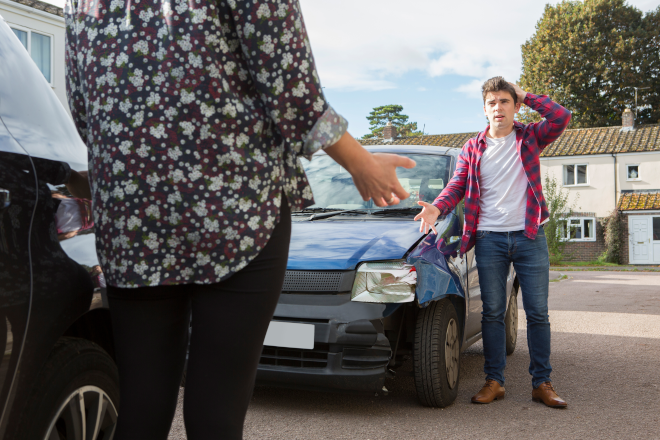

Traffic Fatalities Decline After Cannabis Legalization in Several States
According to a new study by Quartz Advisor, legalization does not correlate to an increase in traffic deaths. This is significant, given that concerns about intoxicated driving are some of the main points of contention among anti-legalization groups.
In the study, researchers compared traffic death rates in legalized and non legalized states, and found that many states that legalized in 2016 actually experienced a decrease in traffic fatalities following policy change. Researchers then compared these rates to states where marijuana remains illegal, which experienced either a slight increase or no change in traffic fatalities during the same years. According to researchers, “traffic fatalities declined or remained the same in the three years that followed, compared to a slight increase in states where it remained illegal.”
But wait, what happens when you add cannabis?
What does the new data say about the correlation between legalization and traffic deaths?
In this article, we cover everything you need to know about this recent report and its implications for the safety of marijuana legalization. Interested, read on!
The Study
The study was led by Quartz Advisor, and compared traffic fatality rates in legalized and non-legalized states over a three-year period from 2016 to 2019. The legalized states studied included Maine, Massachusetts, Nevada, and California–all of which legalized cannabis in 2016. By focusing on these years, researchers aimed to identify whether an increase in traffic deaths occurred in the years directly following legalization–a common concern against anti-legalization groups.
The legalized states studied included Maine, Massachusetts, Nevada, and California.
Researchers then compared these rates to traffic fatalities in states where cannabis remains prohibited, focusing on the same three-year timespan in Idaho, Indiana, Kansas, Nebraska, and Wyoming.
Quartz Advisor also compared both categories to the national average rates for yearly traffic fatalities from 2016 to 2019.
The Results

According to the data, neither Massachusetts, Nevada, Maine, nor California experienced an increase in traffic fatality rates following legalization. In fact, many of these states saw a decline in fatal car accidents:
“Three of the four states saw a significant decrease in vehicle deaths over that span, while the rate in Maine showed no change. Massachusetts saw the biggest drop, as rates fell 28.6% in the three years following legalization.”
Combined, these 4 states saw an 11.6% decrease in traffic deaths from 2016 to 2019–a sharper decline than the national average, which diminished only 10.6% over the same three years.
Overall traffic fatality outcomes were actually much better for legalized states than the five non-legalized states that were studied. In those 5 states, traffic fatality rates either increased or stayed the same during the same three-year period. Combined, the states where marijuana remains prohibited experienced a 1.7% increase in traffic deaths from 2016 to 2019.
Implications for Legalization
These results have significant implications for debates surrounding cannabis legalization, since motor vehicle safety is typically a top concern among anti-marijuana groups and opponents of legalization.
However, Quartz Advisor concluded that from their findings, it seems apparent that traffic fatalities “should not be a significant concern for marijuana legalization initiatives, particularly when compared to alcohol”: “However, the same cannot be said for alcohol [which is] an intoxicant that remains legal, widely available, and deeply ingrained in our culture.”
Moreover, the researchers pointed out that even though their results were limited to just three years, there have been no studies to date that have been able to prove a correlation between legalization and traffic deaths: “As of yet, studies have failed to show that legalization of cannabis has resulted in any significant increase in traffic fatalities in the places where it has been legalized.”
Of course, this is not to imply that driving under the influence of cannabis is by any means safe. Rather, the implications of the study are relevant for political and policy purposes by refuting one of the main points of contention in debates about cannabis legalization. It has not stopped states like Missouri & Ohio from voting for recreational. For the Quartz Advisor Group, “while there is no evidence to suggest that legalizing or decriminalizing marijuana makes roads more dangerous, that is not to say that it is safe to drive while under the influence of cannabis.”
In response to the recent study, Judi Watters of the Maine Bureau of Insurance commented that she had conducted an analysis of her own by examining claim data and frequency in the US and Canada from 2016 to 2019. According to Watters, this analysis “showed no statistically significant changes in the average cost per claim and claim frequency after marijuana legalization,” echoing the study’s contention that cannabis legalization has not been proven to lead to any significant increases in traffic fatalities.
The main takeaway?
That there is no evidence or study showing that traffic fatalities increase in the years following legalization, and that the evidence that has been collected analyzing traffic accidents in these years has found that traffic death rates have either remained the same or gone down after legalization in various states–calling into question a main bargaining point for various anti-legalization groups.







